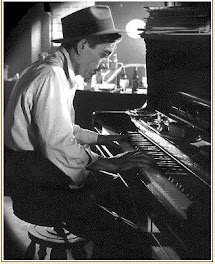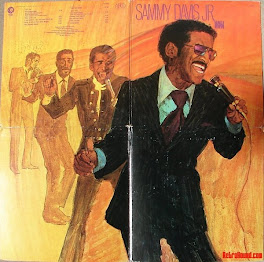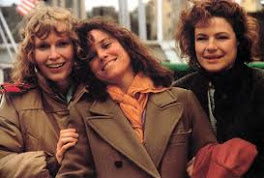
Beginning episodes of World At War (the Olivier-narrated series), on whose DVD was a 'making of' commentary explained by Jeremy Isaacs, the producer.
That segment talked about the 'historiography' involved in making a documentary film -- itself worth getting the whole. At one point, it highlighted contrasting interviews among Albert Speer, Dietrich Bonhoeffer's sister-in-law, and an English woman who had married a German and who was living in Germany during the Nazizeit.
The interviews dealt with their reactions upon first learning of the butchery inside the concentration camps. The spread in response was noticeable, although not so melodramatic as a fiction would show it. Speer (now out of prison, years after the war) claiming regret at deliberately keeping a blind eye. Frau Bonhoeffer relating her shock that those around her back when it was happening were petrified to talk about it and sought to deny that her revelations were more than 'rumors', Allied propaganda.
The English woman -- who told her story of being asked to hide two Jewish children, but was seriously warned against doing so by confidantes, reluctantly allowed them to hide 'for two days'. They departed after their stay. Shortly after, she learned that they were picked up and shipped to the camps. In telling this, 1970s, the camera caught her hands fidgeting, turning around each other nervously. She says, looking away and down to the left, I knew then that Hitler had gotten me to commit murder.
A sequent clip was brought out by Isaacs to illustrate the kind of anecdotal vividness that shorn histories frequently ignore. The same English woman tells of riding, near the end of the war, in an exposed railway coach with an SS officer. His disillusionment is complete and he tells her that he has sought death and failed to find it in battle, always being ironically lucky to survive.
He had been part of a Waffen SS unit, a commando detachment in charge of eradicating civilians. One set of incidents haunted him enough to tell her. They had a group of villagers dig a large burial trench and were about to 'finalize' the proceedings. A man 'with long hair' among the victims came up to him and said, God is watching what you do here. He was shot before he could return to his place at the edge of the trench. A young boy stood erect, and said, Is this straight, Uncle?
The English woman and the SS officer travelled on that night, and once upon waking, she realized that she had fallen asleep with her head on his shoulder and that he had covered up her knees with his greatcoat. The next time she awoke, he was gone.
...






































Powerful stuff my friend.I fear it is going to happen again.This time the victims will be European muslims.My country is turning into a police state.Who would have ever thought that this would happen to England?
ReplyDeleteYes. The series has been around a generation, and I've seen it at least twice through. This viewing, nevertheless, has hit me more strongly than I remember from before.
ReplyDeleteTo imagine something like totalitarian domination again is not -- despite an attitude of girding against the worst -- not what I feel I can emotionally accept even as a possibility.
Never again. For anyone.
As to really bad political impulses, well, they're always around, and my USA had some display of them under the Bush/Cheney Admin.
And there's still a vocal bunch of imbeciles here I wouldn't assign the responsibility of sharpening pencils, let alone running any part of government.
Never again. For anyone.